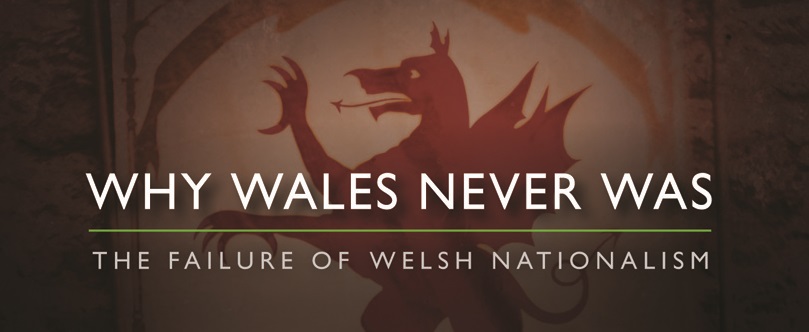by Simon Brooks, author of Why Wales Never Was
In When Was Wales? Gwyn Alf Williams claims that Wales is remade by the Welsh from generation to generation, ‘if they want to’. Wales is thus always ‘now’; despite societal, cultural and linguistic change, Wales is always ‘here’.
Why Wales Never Was is in broad agreement, but approaches the matter from a different angle. It argues that Wales can be unmade too. Indeed, Wales has been unmade since the mid-nineteenth century. It is less Welsh, less wealthy and less autonomous than its previous self; it is less ‘itself’ and, in being less itself, it is different to other European nations. Slovenia, for example, is more Slovene today than it was in the nineteenth century. Nationality is not just a matter of existentialist yearning; it can also be objective fact.
That Wales continues along the path to assimilation is because the Welsh radical tradition of the nineteenth century remains in vogue today. In the nineteenth century, the Shangri-La of civic identity was an answer to all ethnic evils. The general and universal nature of a common humanity trumped Welsh exceptionalism. Victorian Welsh radicals sought a progressive alliance with fellow liberals to advance the interests of all Britons. But this act of civic radicalism enforced a subjugation: the Welsh were to be rid of the unworthy ties of nation and language, which were a barrier not only to Welsh opportunity but, crucially, also to equality for all.
Since Gwilym Hiraethog, Samuel Roberts and Lloyd George, and today in Plaid Cymru and in the Corbyn surge, the Welsh Left has seen itself as part of the vortex of progressive politics. But in its pretence to universalism, progressive politics does not create a new Wales. Rather it assimilates the Welsh to a better version of Britishness. Corbyn’s Cromwellian visions may indeed turn the world upside down, but what will be forthcoming is a new England.
The death of Wales is not to be attributed to conservatism. It is our understanding of radicalism that is at fault.
Welsh nationalism can remain on the Left, for justice between social groups can be attained within a Welsh polity. But the Welsh nation cannot be ‘remade’ unless we look beyond what is traditionally seen as the civic – namely to cultural and historical aspects of our lives that are taken for granted in the identity of many liberal nation states.
This book explains where we’ve gone wrong in the past, and asks whether a distinctive, non-assimilationist, Welsh radicalism is possible in the future.
Dr Simon Brooks is the author of several books discussing language, politics and history, and is currently working on a history of ethnic minorities in the Welsh-language community.


